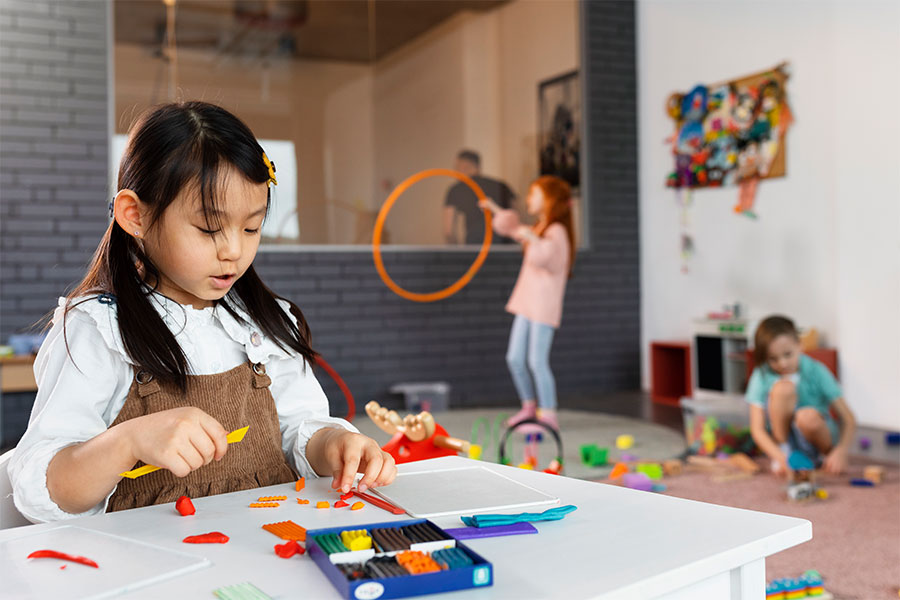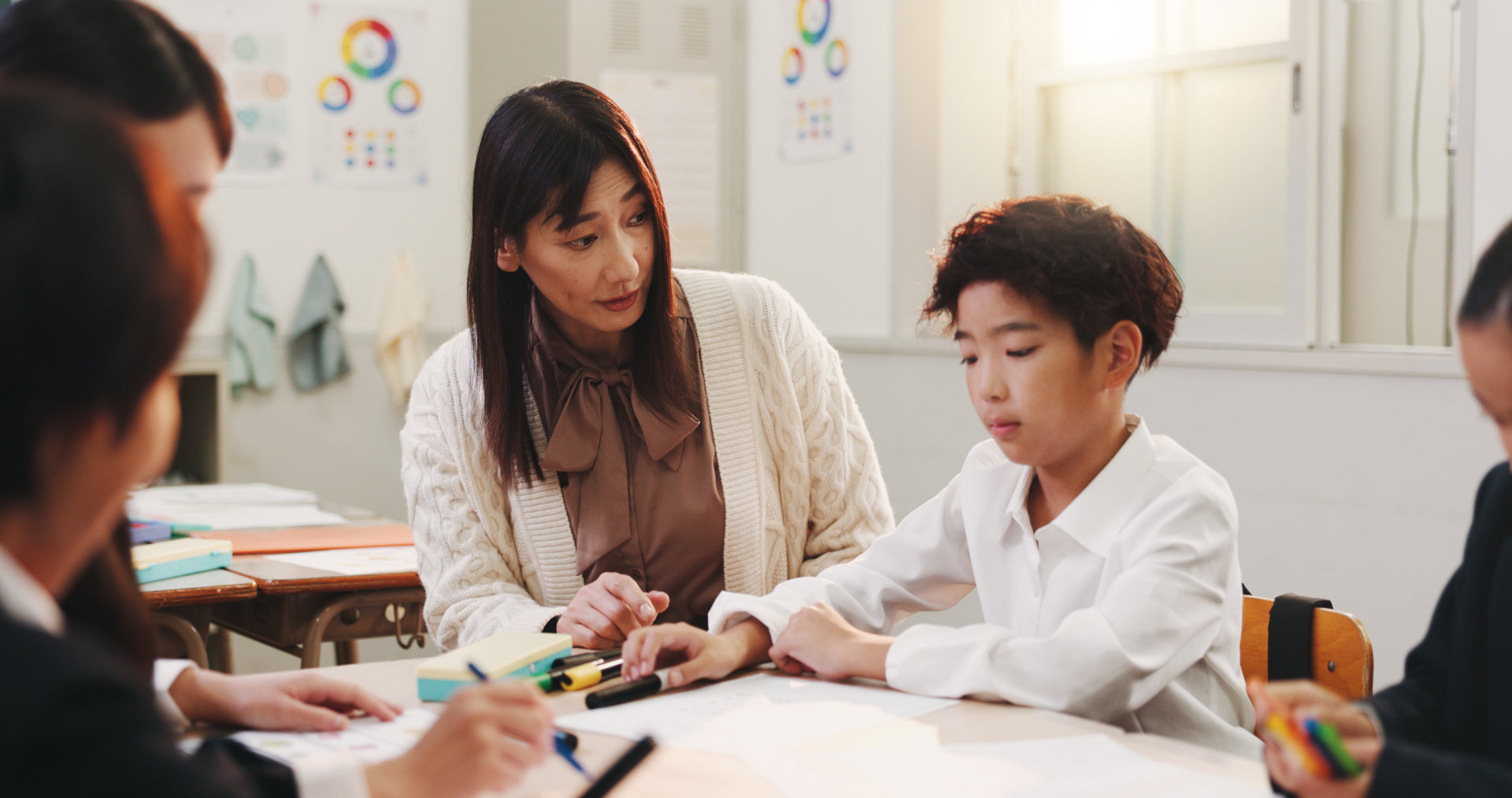 My Cart0
My Cart0

Why Is School Readiness Important for Kids with Special Needs?
The transition from the familiar comforts of home to a structured school environment can be a mix of emotions for any young child. Their readiness for school influences how smoothly they adapt to this new chapter.
However, it’s worth noting that school readiness encompasses more than just knowing the alphabet or counting to ten. It involves a holistic preparation that equips children with the emotional, social, physical, and intellectual skills needed to thrive in a school environment.
For students with special needs in Singapore, this transition can be particularly challenging. Therefore, it’s essential to understand the unique aspects of school readiness for these children and identify the tools needed to support their seamless integration into mainstream schooling.
Understanding School Readiness
What is School Readiness?
Generally, school readiness is a multi-faceted concept that goes beyond academic preparedness. It involves a child’s ability to:
- Regulate their emotions: Manage feelings of frustration, excitement, or sadness appropriately.
- Interact positively with peers: Initiate play, share, take turns, and resolve conflicts peacefully.
- Follow instructions and routines: Listen attentively, understand directions, and complete tasks independently.
- Possess basic literacy and numeracy skills: Recognise letters and numbers, hold a pencil correctly, and understand simple concepts.
- Exhibit physical readiness: Have the fine and gross motor skills required for activities like writing, cutting, and playing on the playground.
Why Are School Readiness Skills Important?
A child’s readiness for school significantly impacts their ability to adapt to the new environment, engage in learning, and build positive relationships. Children who enter school with well-developed readiness skills are more likely to:
- Experience academic success: Grasp new concepts easily, participate actively in class, and complete assignments effectively.
- Develop strong social connections: Make friends, feel a sense of belonging, and navigate social dynamics confidently.
- Maintain a positive attitude towards learning: Feel motivated, curious, and eager to explore new ideas.
- Build self-esteem and confidence: Experience a sense of accomplishment and believe in their abilities.
Core Components of School Readiness
What Are the Most Important Things for School Readiness?
Several key areas contribute to a child’s overall school readiness:
- Self-regulation: The ability to manage emotions, thoughts, and behaviours in different situations.
- Social-emotional skills: The capacity to understand and express emotions, build relationships, and cooperate with others.
- Language and communication: The skills to express thoughts and needs clearly, listen actively, and follow instructions.
- Cognitive skills: The ability to think critically, solve problems, and remember information.
- Physical development: Gross and fine motor skills necessary for movement, coordination, and tasks like writing and drawing.
- Independence: The ability to perform self-care tasks like dressing, eating, and using the toilet independently.
How to Tell if Your Child May Have Challenges with School Readiness?
While every child develops at their own pace, certain signs may indicate potential challenges with school readiness:
- Difficulty following routines or instructions: Struggles with transitions, completing tasks, or understanding expectations.
- Limited social interaction: Hesitates to engage with peers, prefers solitary play, or has difficulty sharing and taking turns.
- Emotional outbursts or difficulty managing emotions: Frequent tantrums, crying, or withdrawal in response to challenges or changes.
- Delayed language or communication skills: Difficulty expressing needs, understanding others, or following conversations.
- Struggles with fine or gross motor skills: Challenges with holding a pencil, cutting, or participating in physical activities.
If you notice any of these signs from your child, consider seeking a professional evaluation in Singapore. Early assessment can identify any developmental delays or conditions, including autism, allowing for timely intervention and support tailored to your child’s needs.
Supporting School Readiness
Parents and educators play a crucial role in nurturing children’s school readiness.
A combination of structured and unstructured activities can foster the necessary skills. These are some of the activities you can do with your child that can help foster their school readiness:
- Read aloud regularly: Expose children to books, stories, and rhymes to develop language and literacy skills.
- Engage in conversations: Ask open-ended questions, encourage storytelling, and actively listen to their thoughts and ideas.
- Play games that involve turn-taking and cooperation: Board games, card games, and group activities promote social skills.
- Provide opportunities for creative expression: Encourage drawing, painting, music, and imaginative play to stimulate cognitive and emotional development.
- Set routines and expectations: Establish consistent schedules for meals, sleep, and play to promote self-regulation.
- Offer choices and encourage independence: Allow children to make decisions within safe boundaries and complete age-appropriate tasks on their own.
What Activities Can Help Improve School Readiness Skills?
Actively engaging your child in play and structured activities can help foster the essential skills they need for school success. Here’s a breakdown of some fun and practical ideas that target specific areas:
- Play-Doh: Molding, rolling, and shaping Play-Doh strengthens hand muscles, improves dexterity, and enhances sensory exploration. This can help your child develop their fine motor skills.
- Colouring & Drawing: Colouring books, crayons, and markers promote creativity, fine motor control, and colour recognition.
- Building with Blocks: Constructing towers, bridges, and other structures with blocks develops fine motor skills, spatial reasoning, and problem-solving abilities.
- Outdoor Adventures: Visit parks, playgrounds, or open spaces for running, jumping, climbing, and exploring.
- Mindfulness Activities: Introduce age-appropriate mindfulness practices, like listening to calming music or focusing on the sounds around them.
- Creating a Calm-Down Corner: Designate a cosy space where your child can go to relax and de-stress when feeling overwhelmed.
- Reading & Storytelling: Engage in interactive reading sessions, asking questions and encouraging your child to retell the story in their own words.
- Group Playdates: Arrange playdates with other children to encourage sharing, taking turns, and cooperating.
- Cooperative Games: Choose games that require teamwork and collaboration, such as building a fort together or playing board games.
The Role of Professional Support
Why Seek Therapy if You Notice Difficulties with School Readiness in Your Child?
Seeking professional guidance when you notice difficulties with school readiness in your child can be instrumental in helping your child assimilate into mainstream schooling. Through comprehensive assessments, therapists can gain valuable insights into your child’s unique strengths and challenges, tailoring interventions that foster skill development and address any underlying concerns.
Early intervention is critical to prepare your child for mainstream schooling and reduce the likelihood of future academic and social difficulties. Additionally, it can equip both you and your child’s educators with the knowledge and tools to create a nurturing environment where your child can learn and thrive.
If Left Untreated, What Can Difficulties with School Readiness Lead to?
Unaddressed school readiness difficulties can have a cascading effect, impacting your child’s academic and social trajectory in significant ways.
Academically, they may struggle to keep pace with their peers, leading to:
- Learning Gaps: Difficulty grasping new concepts can create cumulative learning gaps that widen over time.
- Low Academic Performance: Struggling to meet academic expectations can cause low grades and diminished self-esteem.
- Reduced Motivation & Engagement: Frustration and feelings of inadequacy can lead to disinterest in learning and potential school disengagement.
Socially, your child may face challenges in forming and maintaining relationships:
- Social Isolation: Difficulty understanding social cues and interacting with peers can lead to feelings of loneliness and exclusion.
- Low Self-Esteem: Repeated social challenges can erode a child’s self-worth and confidence.
- Behavioural Issues: Frustration stemming from academic and social difficulties can manifest as disruptive behaviour.
What Type of Therapy is Recommended for School Readiness Difficulties?
There are different types of therapies that can help in addressing the challenges your child may face in a structured school environment. Some common approaches include:
- Occupational therapy: With occupational therapy, the therapist focuses on developing fine and gross motor skills, sensory processing, and daily living skills.
- Speech therapy: Speech therapy for kids addresses language and communication difficulties, including articulation, expressive language, and receptive language.
- Behavioural interventions: This intervention helps children develop self-regulation skills, manage challenging behaviours, and improve social interaction.
- Play therapy: This evidence-based approach uses play to help children express emotions, develop social skills, and process experiences.
When Signs of Autism or Developmental Delays Arise, Seek Professional Help
Early intervention is key to maximising a child’s potential. Whether your child has autism or other developmental disabilities, having the right support and tools allows them to navigate the challenges of mainstream schooling with confidence.
If you observe any signs of developmental delays or are concerned about your child’s school readiness, don’t hesitate to reach out to professionals like Exploring Mates. Our early intervention centre in Singapore offers school readiness programmes that support children with special learning and developmental needs. We have professionals who can assist children in learning the skills they need for structured education, from essential social skills to behavioural management.
Reach out to us today and learn more about how we can guide your child in getting ready for mainstream schooling.
For more information on how you can support your child with special needs to navigate the academic world, learn the benefits of enlisting the help of a school support therapist.








